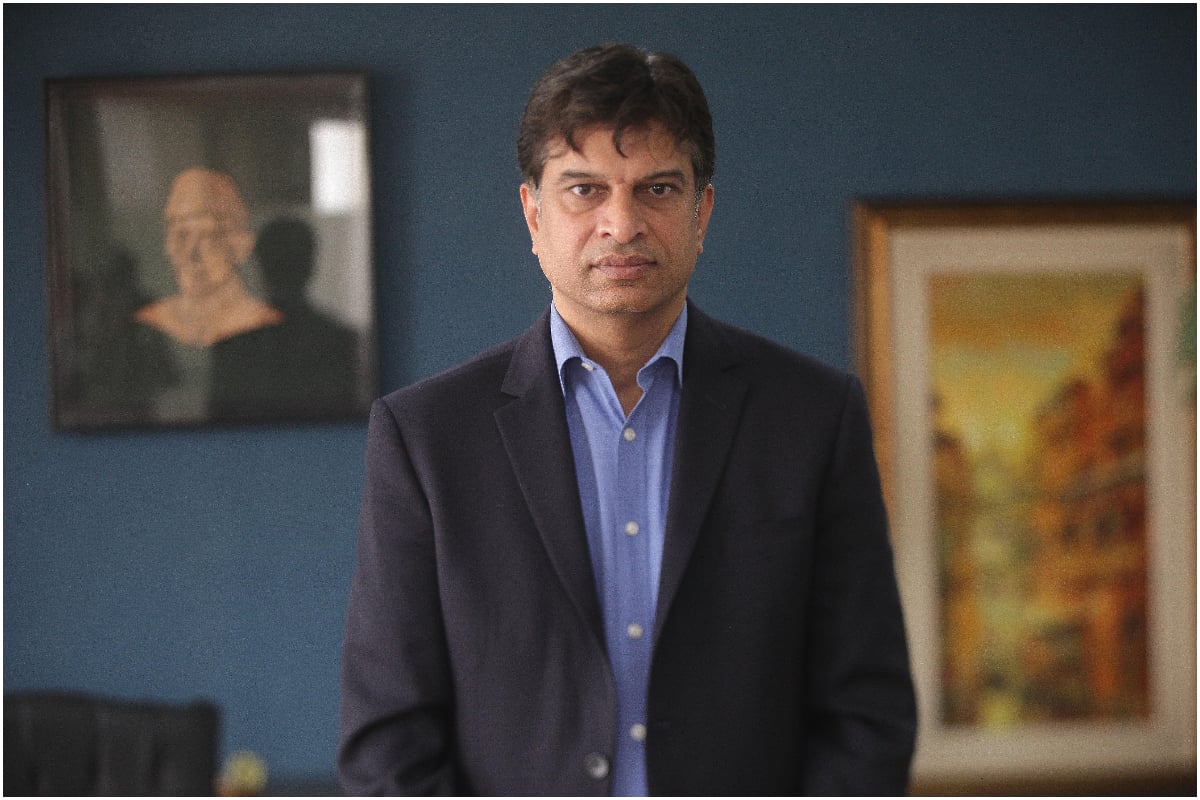
Working to Bring Investment
LAHORE: Pakistan is passing through the worst-ever economic crisis of its history. Financial managers of the country must come up with out-of-the-box solutions to steer the country out of it. The country needs doable short- medium and long-term policies to jumpstart sustainable growth, said Hashim Raza, chief executive officer of the Small and Medium Enterprises Development Authority.
“Our economic indicators were not that bad during 1998 and 2008.
Economists are of the view that the prevailing economic crisis is the worst due to external obligations, fatigue of lending institutions, unsustainable trade, budget and current account deficit.
The local industry is under stress due to the global inflation, high cost of doing business, owing to an increase in the interest rate, energy tariffs and petroleum prices and heavy reliance on imported raw materials,” he said, while talking to BOL News.
“Yes, the situation is really alarming. But every crisis has an opportunity and there is a need to look for that. We have no other option but to revise and reconsider our policy and options,” he added.
“We cannot do anything but to fulfil our external obligations. We are heavily relying on imports to fulfil our energy needs. We will continue doing the same till improving our energy mix. Our food import bill will further increase due to the loss of crops in the recent floods,” he said.
“The way forward is devising and implementing doable short-, medium- and long-term policies to ensure sustainable economic growth. There is a need to take immediate steps for import substitution through local production and manufacturing and increasing exports. Destinations of our majority of exports are Western Europe and North America, which are facing recession that is likely to continue till 2025. Diversification of products, value addition and exploring new markets is the need of the hour,” he said.
The development of Small and Medium Enterprises and cottage industry is the key to the economic revival and sustainable growth of the country, Raza said.
“We have limited fiscal space. Large-scale businesses can influence public policy due to easy access to official policy debate fora and contacts and proper networking with key decision makers. There is a need to give due attention to the Small and Medium Enterprises (SMEs) dealing in the sectors such as dairy, food processing, grains storage and information technology” he added.
“These have the potential to improve the GDP growth and create employment opportunities. Around 5.2 million SMEs are employing 72 per cent of the non-agriculture labour force in Pakistan, contributing around 40 per cent to GDP and 25 per cent to the exports.”
“The SME sector has the potential to create 10 times more jobs than the big enterprises with the same investment. As such, supporting the SMEs is vital for sustainable economic growth and creation of job opportunities in the country, where 65 per cent of the population is below 30 years of age,” the Smeda CEO said, adding that the access to finance, credit or equity is a big issue the SME sector is facing.
“We cannot expect different results, while doing the same things. We lack capital, modern technology and skilled manpower. As such, small industries and not the big ones should be the targets to increase exports. There is a need to provide enabling atmosphere to the SMEs dealing in potential export-oriented sectors,” he added.
“We should reduce entry barriers, provide proper guidance to the SMEs and improve their access to finance to achieve the desired results,” he said.
Raza is a graduate in mechanical engineering from the University of Engineering and Technology (UET), Lahore and also part of the founding team of Smeda, where he served as its general manager for around six years.
Before starting his professional career, Raza completed his Masters’ degree in industrial and management engineering from Rensselaer Polytechnic Institute, Troy, New York (US) in 1993.
He has diverse experience of around 27 years in the development sector, especially the SMEs development in various countries, including Pakistan, the US, Qatar, Bangladesh, Thailand, Turkey, the UAE and Mozambique.
Much of his recent works involve research, economic sector development, project design, public policy development, micro, small and medium enterprises development, training, institutional development, public sector reforms, sector research and development, strategic management and business process re-engineering.
He is also the member of the National Coordination Committee on SMEs, International Network of Small and Medium Enterprises (INSME), OIC Task Force on SMEs and Pakistan Engineering Council.
Besides, he is serving on the board of directors of various government organisations, including the SME Bank Limited, Pakistan Industrial Development Corporation, TUSDEC, STEDEC and PASDEC.
Before joining Smeda as the CEO in 2020, he was the senior partner at Raza and Associates, a consultancy firm providing services in the areas of business development, project management and administration.
Following are the excerpts of an exclusive talk with him:
How serious is the prevailing economic crisis?
Leading economists believe that the nature of prevailing crisis is more serious than the ones faced by the country in 1998 and 2008. Our macroeconomic indicators like debt, current account deficit and tax collection ratios to the GDP were not that much compromised in 1998.
The 2008 crisis was external in nature that have little impact on Pakistan. Now, the situation is really alarming due to the obligations of debt and interest payments, fast depleting foreign exchange reserves, unsustainable current account deficit and high cost of doing businesses.
We need to reassess our strategy and try to create opportunities from the prevailing crisis. We should stop unnecessary imports and increase exports for sustainable economic growth of the country. We need to sustain our production base within three years and devise and implement a 10 to 15 year plan to achieve the long-term sustainable growth.
What are the challenges for the SMEs development?
The public policy continues to support structural advantage for larger businesses vis-à-vis smaller firms.
The SMEs are barely organised in any formal groups, often lack specific proposals and are weak in articulating their support needs.
It is always easier to talk to a highly educated and well-informed business executive from a large-scale firm and quickly put together a favourable support regime accordingly.
The SMEs often have limited outreach to their international counterparts and have a shortage of resources to travel and participate in the business fares or invest in creating business networks across the globe. An overall outcome being a global trading system that is heavily biased against the SMEs.
How can these issues be addressed? Possible benefits?
The challenges in the SMEs development can be addressed only through a change in the mindset that is easy to articulate and difficult to bring about.
Investment in the SMEs can bring higher public good and profitability returns, provided the governments and the private sector develop systems to reach out, create cost-effective service delivery mechanisms and remain sensitive to the needs of the SMEs.
Flourishing the SME landscape increases the size of the pie for private investment and can create new avenues for economic growth.
How can we overcome the trade deficit?
There is a need to devise and implement doable short- and long-term plans to reduce the ever-increasing trade deficit. There is a need to discourage unnecessary imports, go for import substitution through local production and manufacturing, reduce the input cost of export-oriented industries, diversify products, value addition and explore new export destinations.
Your take on the interest rate hike and its impact on the SMEs?
Revising upward the interest rate is not a good move. An increase in the markup rate has enhanced the cost of borrowing for the businesses. Now, it is more difficult for the cash-strapped SMEs and the cottage industry to manage their businesses. The State Bank of Pakistan (SBP) should reduce the interest rate and bring it at par with the regional countries to provide some breathing space to small businesses.
How has global inflation affected the local businesses?
The inflation has badly affected all the businesses across the world. The situation is really alarming in Pakistan, as our economy is import-based. We import oil and gas to fulfil our energy needs and even agro-based products such as oilseeds.
Our manufacturing sector heavily relies on imported raw materials. High energy costs and freight charges have badly affected the businesses.
What is the reason for the smaller share of the SMEs in the total borrowings?
The annual borrowings of the SMEs stood at Rs450 billion, which is 6.5 per cent of the total loans. The government borrowing is 55 per cent to 65 per cent and the remaining share is captured by the corporate, auto and housing sectors.
During the tenure of Dr Ishrat Husain as the SBP governor, the SMEs share in borrowing was 18 per cent. History shows that the SMEs can get another Rs900 billion from the credit market on the provision of conducive atmosphere and favourable policy. There is a need to give the SMEs easy access to the finance so that they can avoid loans from friends, relatives and the informal sector.
The provision of collateral-free loan is a good programme, which should continue in the larger interests of the SMEs sector and the economy.
Your take on the SME Policy? Will it be implemented?
The SME-led sustainable development is the only viable option. We are running out of time and, as such, cannot afford any delay. The SME Policy is the starting point and I am optimistic about its implementation.
How Smeda is helping the SMEs?
The Smeda’s one-window facility provides solutions to the startups and the SMEs through a single platform. It provides hassle-free services from business idea validation to business registration so as to enable the SMEs to fully focus on their business operations.
We are launching Business Ideas League for getting business plans from the young graduates, early and mid-career professionals and microenterprises. Top plans will be shortlisted for implementation.
We are arranging training sessions on e-commerce in the second tier cities such as Gujranwala and Sargodha to encourage products labelling.
We have recently arranged an expo in Gilgit-Baltistan as part of the project “Promotion of SMEs through tourism”.
We have prepared PC 1 of the project “Promoting investment in the SMEs by overseas Pakistanis”.
We will prepare business proposals for expatriates and guide and assist them through a dedicated cell at Smeda. Definitely we will engage missions abroad to bring foreign direct investment in the country.
Catch all the Economic Pulse News, Breaking News Event and Latest News Updates on The BOL News
Download The BOL News App to get the Daily News Update & Live News.








 Read the complete story text.
Read the complete story text. Listen to audio of the story.
Listen to audio of the story.